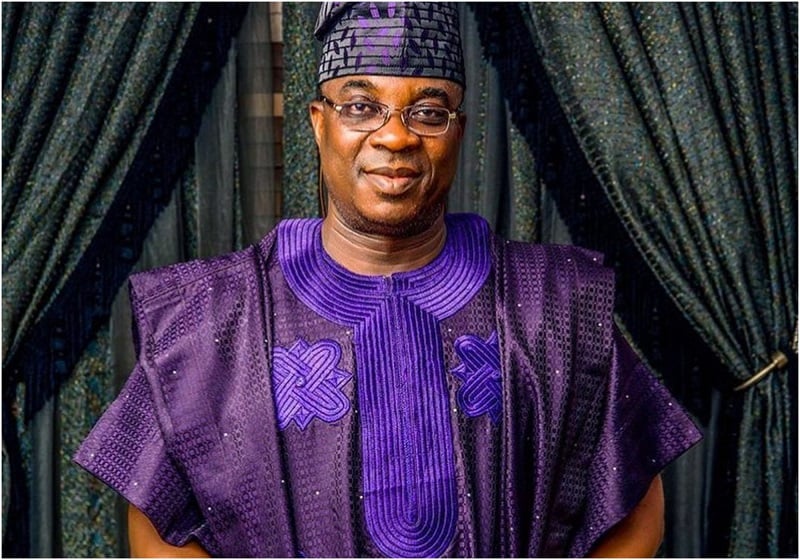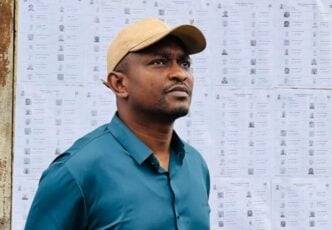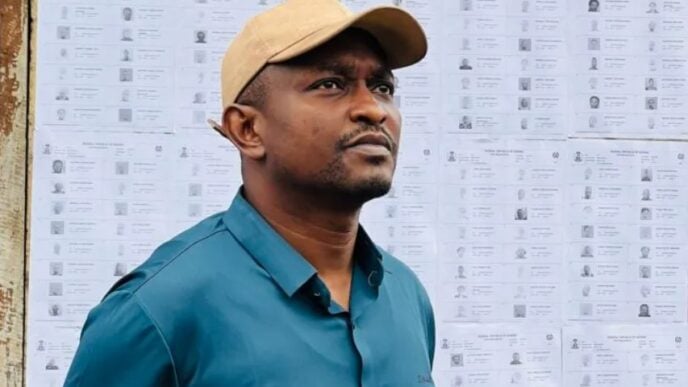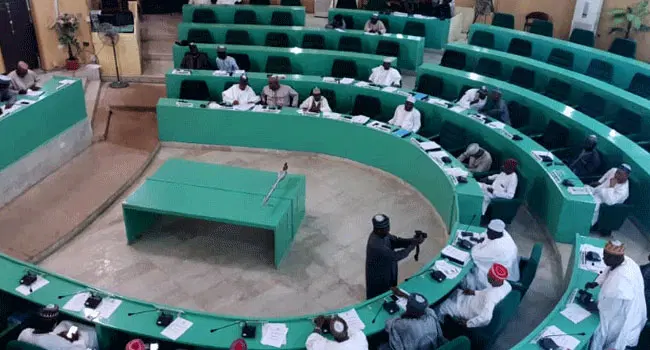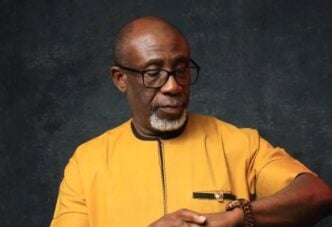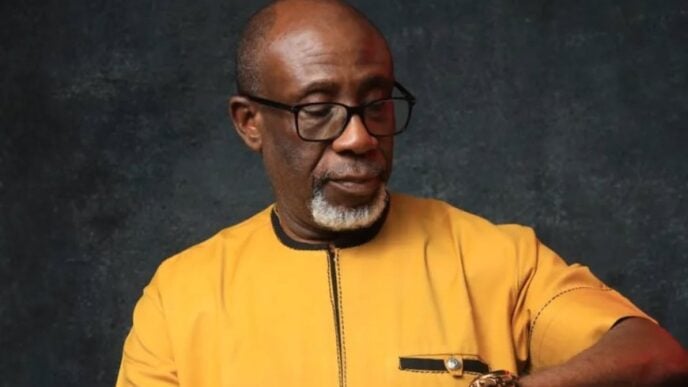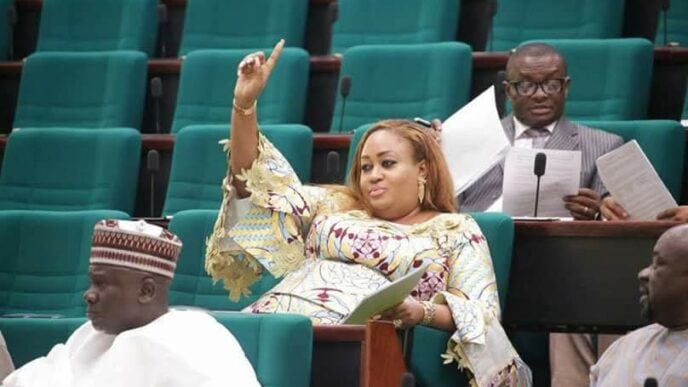My friend and I were passing by a car parked next to my street. We usually discuss Nigeria during our daily exercise and it is our wont to analyse trending events and developments, trying to highlight the problems and propose possible solutions. I always tell David: “It is very easy to point out Nigeria’s problems. Every Tom, Dick and Harry can do that. The hard part is proffering workable solutions from the position of knowledge, not emotions.” On Friday, the topic of our discussion was the recent aviation dramas: the one between Prince Wasiu Anifowose, the fuji maestro also known as K1 De Ultimate or KWAM 1, and Valuejet; and the other between Ms Comfort Emmanson and Ibom Air.
What have we really learnt from these episodes? “You see that car and all the gadgets?” I asked David, rhetorically. “When cars were first made, I can assure you there were no side mirrors, wipers or sound systems. With driving experience, motoring evolved. Manufacturers began to see the need for these additions to improve user experience.” Today, cars have dashboards to help with camera-guided reversing and parking, for performance management, navigation, etc. There are now airbags to protect passengers in the event of an accident — and many lives are being saved by this. Serious societies learn from every experience and take measures to address identified shortcomings.
In the Valuejet incident, we saw video clips of K1 trying to stop a flight from taking off at the Nnamdi Azikiwe International Airport, Abuja. When the pilot eventually decided to call his bluff and take off, K1 had to skilfully duck under the right wing which would have knocked him down and probably ended his life. I had never seen anything like that in my life, not even on Netflix. He had tried to board the flight with a flask — whether or not it contained water or alcohol was another matter. By aviation rules, there is a limit to the volume of liquid allowed beyond security gates. Denied boarding, K1 made a scene and allegedly poured some liquid on the captain who had intervened.
The second incident involved Emmanson a week later. We first saw a video of her hitting a member of Ibom Air crew who was obviously blocking her from disembarking. The hostess, also named Comfort (and my mum is also Comfort, so I am a bit uncomfortable here), did not retaliate. I suspect she knew the drama was being video-recorded. Emmanson was eventually physically pulled out of the aircraft because she was apparently under arrest. According to Ibom Air, Emmanson had refused to comply with safety instructions on mobile phone use, assaulted crew members, and tried to use a fire extinguisher as a weapon — but Emmanson is yet to tell us her own recollections of the events.
Advertisement
Back to K1, the civil aviation authorities first placed him on a six-month no-fly list — which means no airline operating in Nigeria can fly him, else its licence will be suspended — and sent a criminal complaint to the attorney-general of the federation and the inspector-general of the police. Because of his social status (for those who don’t know, K1 is the pre-eminent Fuji artiste and one of the biggest stars in the world of Yoruba music), it would appear nobody was willing to arrest him. Blocking the path of an aircraft is unheard of and would qualify as an act of terrorism in many countries. Referring his matter to the AGF and IGP, I think, was a coded move to kill the matter.
Emmanson, an “unknown” Nigerian, was not that lucky — as is usually the case with “unknown” Nigerians. I mean, the prisons are full of people who stole a piece of meat, whereas those who pilfered billions get a slap on the wrist, after which they may be rewarded with national honours. Not only was she bundled out of the aircraft, she was also promptly charged to court, and the judge wasted no time in sending her to detention at the Kirikiri prisons (with the fancy name “correctional centre”) until October 6, 2025. After protests and criticisms — especially the comparison with the more serious offence allegedly committed by K1 — Emmanson was freed from prison detention.
I now return to the question: what did we learn? By the way, I am not interested in the 2027 politics that coloured some reactions. I want to stick to the facts in the public domain in making my comments. K1 said he passed security with an empty flask and it was only at the lounge that he filled it with water to take it on board. He said he suffers severe dehydration, which means he needs to constantly take water. If it is true that the flask was empty when he passed airport security screening, no offence had been committed at this stage. Aviation rules do not allow you to take a certain volume of liquid beyond security point. However, there is no limit if you get it after screening point.
Advertisement
When K1 was challenged at the boarding gate, Valuejet’s suspicion was that the flask contained alcohol. I do not think the officials did enough diligence to keep evidence that it was alcohol. And if it was indeed alcohol, is it permitted on board? To the best of my knowledge, alcohol can be carried into an aircraft. In fact, airlines serve alcohol on certain flights. Also, alcohol is sold after security screening and people buy and take it aboard. So, even if K1 was carrying a flask filled with alcohol, he had not committed any offence. In other words, merely carrying a flask of liquid to the boarding gate doesn’t mean you have broken the law as long as the content was obtained after security screening.
The question that will need to be answered here is: was the flask really empty when he passed security? How are we going to find out? The way our airport “security” officials behave, security is the last thing on their minds. For one, they can be star-truck. Once they see a public figure or celebrity, they lower their guard. Those ones can get away with anything. I would, therefore, suggest that fixing this part of the leak should be of utmost concern to the aviation authorities. Airport officials are less than professional in the way they do their job and it is something I have witnessed many times. Regrettably, we may never know if K1’s flask was empty or not at the screening point.
When K1 was told by the Valuejet officials that he could not board with the flask, he pushed back, allegedly pouring the liquid on the captain. This, if true, was the beginning of the misdemeanour. He should have been restrained by airport security. When he further went to stand in front of the aircraft, the flight should have been grounded for security reasons until the human obstruction had been cleared. Instead, ground officials were pleading with him. By the time K1 was doing “James Bond” as the pilot recklessly decided to take off, he should have been in handcuffs. Our airport security can be very weak. K1 can’t try that in Togo. The US is too far to be used as an example.
What are the lessons? One, security screening at the airport must become stricter. Any VIP who refuses to submit to scrutiny should be cautioned. If it is the “big” people with their own security that are causing the disruption, this should be properly documented and reported to the appropriate agencies, including the DSS. Let it be on record. Two, if passengers have to take certain things on board for medical reasons, there must be a doctor’s report. This is also necessary for documentation. We need to set these ground rules so that there is no room for guesswork or doubts. Three, if any passenger should behave the way K1 did, they should be arrested and charged to court immediately.
Advertisement
As for Emmanson, we still do not know the entire facts. But under no circumstance should a passenger hit or intimidate a cabin or crew official. This is frowned upon in advanced societies. In the UK, for instance, you could be prosecuted for assaulting an airline or trainline official. A bus driver can decide to suspend a journey if under assault or intimidation from a passenger. My younger sister always says we have no respect for one another in this country and I agree with her. We treat people with disdain. We find it hard to say “thank you” when we are served; we think that because someone is a security guard, receptionist, dispatch rider, driver or plumber, they are less than human beings.
But respect cuts both ways. Did the Ibom Air official treat Emmanson with some respect? What was their manner of approach in asking her to switch off her phone? Respect begets respect. That does not and can never justify her alleged violent conduct, but it would be good to know exactly the sequence of events so that we can learn some customer care lessons therefrom. Perhaps, the airline personnel need to learn how to pass their message to passengers in a polite manner. Moreso, the way Emmanson was arrested looked very crude and embarrassing. Is there no decent or more civilised way of arresting an alleged offender? Must the officials behave like the thugs of Oshodi Oke?
I would expect the airline operators, aviation authorities and security agencies to do a post-mortem on these incidents and examine them sincerely to know what went wrong and what could have been done better. Like I said, the rules must be clear and may have to be read out at the point of conflict to help passenger education. Also, pilots need to be reminded of their professional responsibilities. Similarly, airport security must become more professional. I would also say cabin crew must undergo constant training on customer management. Above all, we need a class-blind consequence management process. There are enough lessons to go round from these two appalling incidents.
Sadly, we hardly learn any lessons. Otherwise, Nigeria would not be like this. The next incident is just around the corner. Senator Adams Oshiomhole did his own drama at the Lagos airport some months ago. Nothing happened. A whole former governor? Who can touch him? That is the way we roll in Nigeria — a country where “big” people can do and undo. They are above the law. That is why when Nigerians started kicking that Emmanson could not be in Kirikiri while K1 walked free, we decided to forgive both. Faced with the choice of bringing a big man to book, we would rather free a small fish. We missed a trick there — a golden opportunity to show that nobody is above the law. Farcical.
Advertisement
AND FOUR OTHER THINGS…
POLICY WATCH
After we had gone on a binge of creating tertiary institutions in virtually every local government (OK, I know I’m exaggerating) without the slightest idea of how to fund them and where the teachers will come from, the Federal Executive Council (FEC) has now placed a seven-year ban on establishing new ones. Dr Tunji Alausa, minister of education, said: “In our country, access to quality education is no longer an issue. What we are witnessing today is duplication of new federal tertiary institutions, a significant reduction in the current capacity of each institution, and degradation of both physical infrastructure and manpower.” Typical policymaking in Nigeria: shoot first, think later. Amazing.
Advertisement
EVIL SERVANTS
Mr Ola Olukoyede, chairman of the Economic and Financial Crimes Commission (EFCC), recently revealed that there are many abandoned housing estates in the federal capital territory (FCT) and across Nigeria, which he suspects were being developed by civil servants with stolen money. “The moment they leave public service and the money is no longer coming, they abandon the estate. Then, the developer will start looking for investors to support them to complete the project,” he said. The focus of money laundering via property development is often on politicians, but those ones are still learning the craft compared to a class of civil servants. Can EFCC crack the hard nut? Watching.
Advertisement
THE CATALYST
I was at the Tayo Aderinokun Hall of the University of Lagos last week as my mentor and renowned sports journalist, Dr Mumini Alao, presented his autobiography, with a guest lecture by Mr Babatunde Fashola, former governor of Lagos state, titled ‘Rethinking the Current Football Business Model in Nigeria as a Catalyst for Sports Development’. Alao, who discovered my sports writing talent in 1991, inspired and mentored a whole generation of sports journalists. As editor of Complete Football, he played a key role in Nigeria’s football development (not just journalism) in the 1990s with his exposés and insightful journalism. I intend to devour every word in the book. Legend.
Advertisement
NO COMMENT
Mrs Kemi Badenoch, the erratic leader of the UK Conservative Party and world-famous Nigeria-basher, says she no longer identifies as a Nigerian. “I am definitely an Essex girl,” she later said in her makeshift British accent. So sad. Since her earth-shaking proclamation, the sun has stopped shining in Nigeria. We are completely finished! I know it is none of my business, but the real British people know themselves. When Mr Nigel Farage, the British version of Donald Trump and leader of the anti-immigration UK Reform party, asks Badenoch to “go back to your country”, what would she say? “Please, I’m a white woman trapped in a black skin. My name is Chemical, not Kemi.” Hahahaha.

